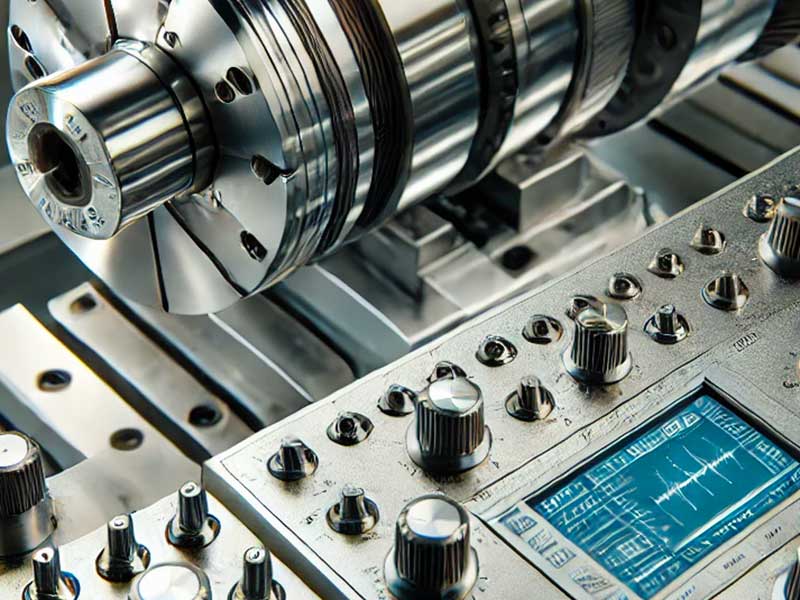The importance of Cybersecurity for Industrial Machinery

The industrial machinery sector is going through a period of great technological change.
When we think of industrial machinery, what comes to mind? A giant factory? Heavy equipment? The assembly line of an automobile plant? Although these images make sense from an industrial point of view, they do not do justice to how much technology is involved in modern production processes, nor do they reflect just how vulnerable these processes can be in today’s online work environment, if they are not protected.
In fact, many manufacturers today rely heavily on computerised systems for everything from controlling production lines to monitoring plant conditions (including safety risks). Industrial machinery has evolved into an ecosystem that uses cloud computing, artificial intelligence and machine learning to optimise operations and improve products.
In the age of industrial automation, machines have become the beating heart of modern factories. With their advanced functionality and connection to company networks, they offer high efficiency, precision and productivity. However, this technological advancement introduces several challenges, particularly regarding IT security.
Threats from the digital world
The Internet of Things is bringing new opportunities to the cybersecurity sector. Given the ability to collect more data, we can use it for predictive maintenance, which improves the efficiency and safety of machinery. The Internet of Things (IoT) refers to the interconnection of physical devices through wired and wireless networks with embedded sensors that collect, store or transmit information about the device. The result is an increase in the amount of data available for analysis, analysis that enables, for example, better planning before equipment failure occurs, rather than reacting after the fact, when damage has already occurred.
The increase in interconnections and connectivity makes industrial machinery vulnerable to cyberattacks. Threats, such as malware, ransomware and zero-day attacks, can disrupt production and/or cause delays in production, leading to reputational damage, loss of competitiveness and significant financial losses. Cybersecurity therefore plays a crucial role in ensuring business continuity and protecting intellectual property. And here we come to our industrial machines in the context of today’s IoT.
Indeed, industrial machinery, such as industrial control systems (ICS) and Internet of Things (IoT), are exposed to a wide range of threats. A targeted attack could compromise the integrity of production data, affect product quality and even put the safety of workers at risk. Protecting these machines requires a holistic approach to security, including strong authentication, encryption, data protection and constant monitoring.
Security measures to protect industrial machinery:
Important literature is beginning to emerge in this area: cybersecurity experts recommend the implementation of several security measures to ensure protection. These include, for example, network segmentation to limit unauthorised access, the use of industrial firewalls, the adoption of robust password management policies and, among the most recommended, the introduction of Cybersecurity software dedicated to the OT environment.
This software continuously monitors the machines. This continuous monitoring, using threat analysis and intrusion detection tools, makes it possible to identify abnormal behaviour in real time that could identify an attack in progress.
It is precisely with this aim in mind that Gyala has designed and developed a powerful IT/OT Cybersecurity product that meets precisely these needs: thanks to its profound and long-standing experience in the defence sector, it has created AGGER, to protect the strategic IT/OT assets of companies.
With Agger we have therefore introduced a different level of Cybersecurity through an all-in-one system, for any type of device and operating system, enhanced by a sophisticated supervisory and automatic-reaction AI system capable of guaranteeing the stability and resilience of IT/OT environments.
Staff awareness and training
In addition to technical measures, staff awareness and training are crucial to ensure a solid defence. Users must be aware of the possible tactics used by hackers and must be instructed on how to recognise and report potential attacks. Creating a safety culture within the organisation is another crucial element.
Conclusions
Cybersecurity has become a top priority for companies that depend on industrial machinery for their production. Investing in security is crucial to ensure business continuity, avoid losses in production, time and productivity, protect intellectual property and preserve corporate reputation. With a holistic approach that includes technical measures, staff awareness and ongoing training, companies can mitigate cyber threats and protect their technological heart.”